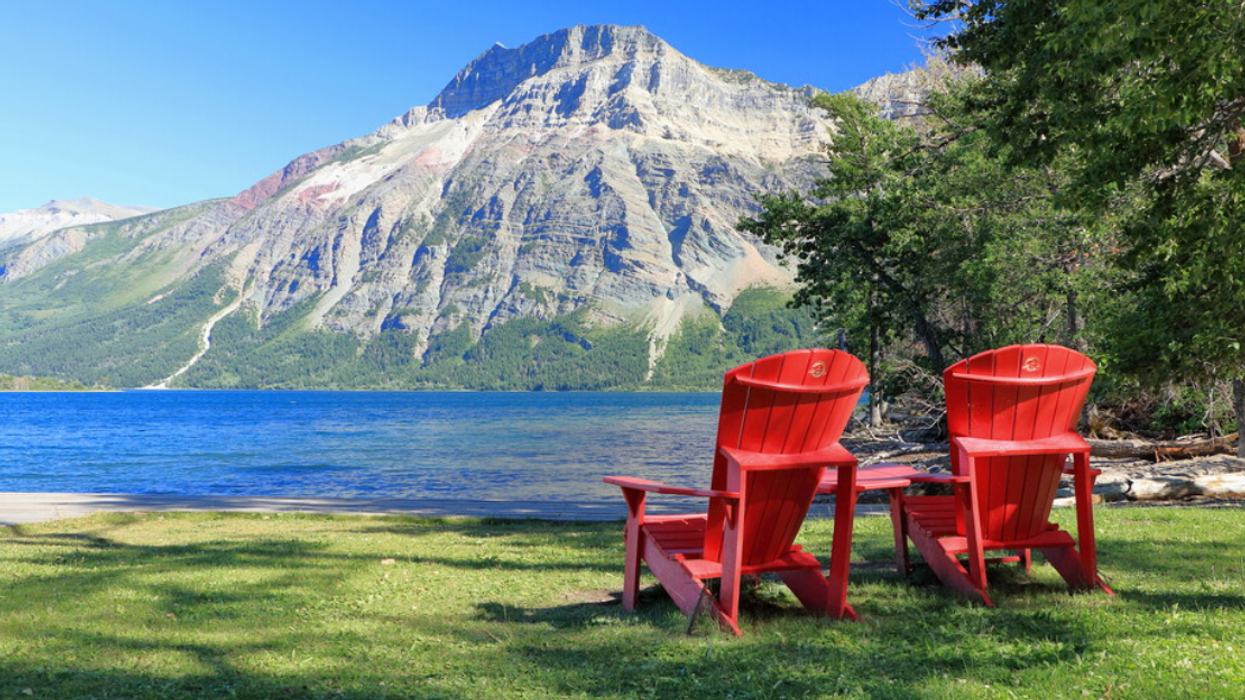How Much Money Do Canadians Need To Retire? A Bank Asked People & The Answer Is Scary AF
Saving for retirement has never been more intimidating.

Two red Adirondack chairs sit in front of a lake at Waterton Lakes National Park.
A study by BMO found that Canadians believe they'll need as much as $1.7 million in order to retire, a 20% increase from the results of last year's survey. But fewer than 50% of Canadians "are confident they will have enough money to retire as planned," the survey revealed, a 10% decrease from 2020.
In other words, Canadians believe they'll need more money than ever to retire and have even less faith that they'll make it there. It's not looking better on a provincial level, either.
Compared to those in other provinces, Quebecers contributed the lowest amount to their Registered Retirement Savings Plans (RRSPs), depositing an average of $6,155 in 2022. The province with the second-lowest average RRSP contribution is Alberta, with a mean of $7,054 — nearly a full $1,000 higher than Quebec's average.
In terms of the average amount held in RRSPs, Quebec lagged behind every province except British Columbia, where residents hold an average of $125,573 as opposed to Quebec's average of $125,751.
You may notice that these numbers are significantly lower than the amount most Canadians estimate needing for retirement, which doesn't exactly paint a pretty portrait of Canadians' — especially Quebecers' — capacity to retire when they're ready.
The average and suggested age of retirement is around 65, which is when Canada's federal pension plan kicks in, generally speaking. But when BMO asked Canadians when they plan to retire, only 22% said they planned it between ages 60 and 69, the range Canada describes as standard.
The reasons behind these trends are myriad, but among them is the state of the economy, which 69% of surveyed Canadians say affected the amount they're able to save.
This article's cover image was used for illustrative purposes only.
